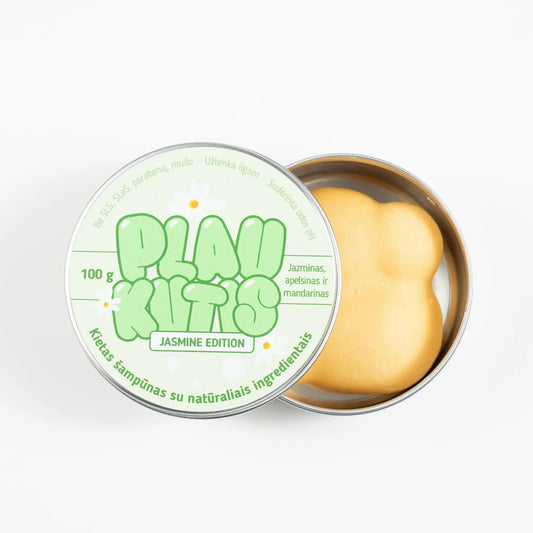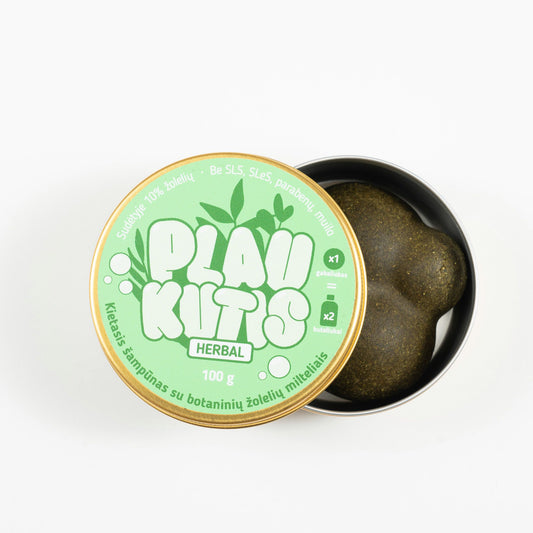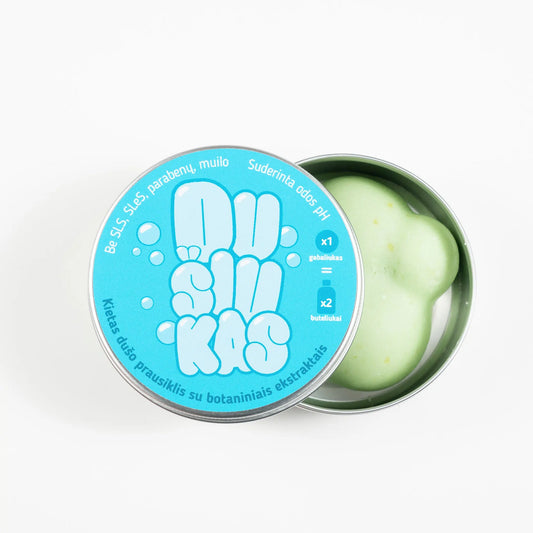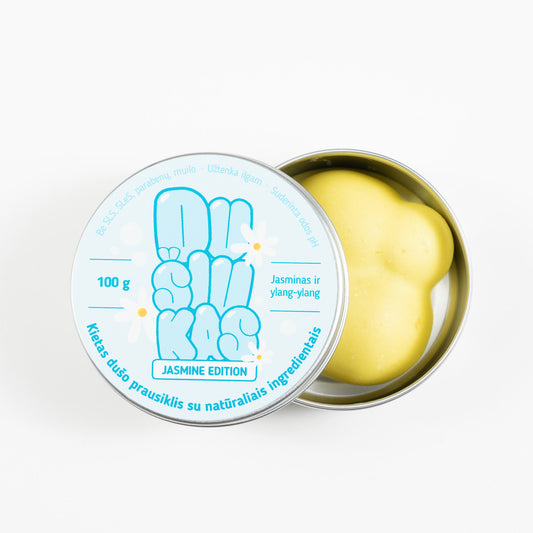Sulfates are commonly used detergents found in many shampoos and personal care products. They are foaming agents—compounds that attract both oil and water, making it easy to remove dirt, oil, and other product residue. The most common sulfates used in shampoos are sodium lauryl sulfate (SLS) and sodium laureth sulfate (SLES). These ingredients are popular because they create that rich, foamy layer that makes hair feel clean.
However, with the growing interest in sulfate-free shampoos, questions are being raised about whether sulfates are too harsh on the hair and scalp. In fact, a 2022 survey found that over 35% of consumers in the U.S. prefer sulfate-free shampoos due to concerns about dryness and hair damage. In this article, we’ll explore the myths, facts, and research surrounding sulfate use, and provide insights into whether sulfate-free shampoos are the best choice for you.

Myths about sulfates: revealing the truth
As sulfate-free shampoos become more popular, so do many misconceptions about the role of sulfates in hair care. Here, we'll discuss some of the most common myths and explain the facts.
Myth: “Sulfates are toxic and dangerous”
One of the most common misconceptions is that sulfates are harmful or toxic to the human body. In fact, the United States Food and Drug Administration (FDA) and the Cosmetic Ingredient Review Board (CIR) state that sulfates are safe when used in cosmetic products such as shampoos. In shampoos, sulfates are generally used in safe concentrations, usually 1-2% . High concentrations, such as 10% or more , can cause skin irritation if left on the skin for long periods of time, but this is not a problem when using rinse-off products such as shampoos.
Myth: “Sulfates cause hair loss”
There is no scientific evidence linking sulfates to hair loss. Hair loss is most often linked to genetic factors, stress, hormonal imbalances, or certain medical conditions. However, sulfates can strip the scalp of its natural oils, causing dryness and breakage, which can make hair appear thinner. A 2018 study published in Dermatology Times found that overuse of sulfate-containing products can cause hair breakage in 12-15% of users with sensitive or dry scalps.
Myth: “Everyone should avoid sulfates”
Not everyone needs to avoid sulfates. If you have an oily scalp or use a lot of styling products, sulfates can be effective at deep cleansing and removing product buildup. However, if you have a sensitive scalp, color-treated hair, or dry, frizzy hair, sulfates can worsen dryness. In these cases, sulfate-free shampoos are a better option. For the average consumer, sulfates are safe when used in moderation.
Myth: "Sulfates are harmful to the environment"
This myth has some truth to it, but it’s not that simple. Sulfates like SLS are derived from both petroleum and natural sources like coconut oil. While they are biodegradable, their production can have an environmental impact, especially if they are derived from petroleum. A 2020 environmental study found that the production of sulfate-containing detergents accounts for 3-5% of all emissions in the cosmetics industry. Many brands that produce sulfate-free shampoos are trying to promote greener alternatives that reduce their overall environmental impact.

Benefits of sulfate-free shampoos
Sulfate-free shampoos are gaining popularity not just because of marketing but also because of their real benefits, especially for certain hair types. Here's why it's worth considering switching to sulfate-free shampoos.
Gentler effect on scalp and hair
Sulfate-free shampoos are much gentler, making them ideal for people with sensitive scalps. Those prone to irritation, flaking, or redness often find relief when switching to sulfate-free alternatives. A 2019 study published in the Journal of Cosmetic Science found that more than 60% of participants with scalp conditions like eczema or psoriasis reported a reduction in symptoms after just four weeks of using sulfate-free shampoos.

Long-term hair health and moisture retention
Sulfates are strong detergents, but they can be overly effective because they strip your hair of its natural oils. This can leave your scalp dry and your hair brittle. A 2021 study published in Hair Therapy and Transplantation found that people who used sulfate-containing shampoos lost 20-30% more moisture compared to those who used sulfate-free shampoos. The study concluded that sulfate-free shampoos helped retain 15-20% more moisture in their hair, making it healthier and more resilient.
Sulfate-free shampoos, which often contain gentler alternatives like cocamidopropyl betaine or decyl glucoside , are especially beneficial for people with curly, wavy, or coily hair. These hair types tend to be dry, so maintaining natural oils is essential to prevent breakage and maintain beautiful curls.
Hair color maintenance
If you color your hair, sulfate-free shampoos can help your color last longer. Sulfates tend to strip color from your hair, causing it to fade faster. A study in Cosmetic Dermatology found that using sulfate-free shampoos can help your hair color last 20-30% longer. This is especially important for people with bright or trendy colors, like red or pastels, which are more prone to fading.

The most popular sulfate-free shampoos on the market
With the increasing popularity of sulfate-free shampoos, many brands are offering effective products tailored to different hair types. Here are some well-known sulfate-free shampoos:
- Briogeo Don't Despair, Repair! Super Moisture Shampoo : Ideal for dry and damaged hair, this shampoo combines hydration with nourishing ingredients like seaweed and panthenol.
- L'Oréal EverPure Sulfate-Free Color Care System : Designed specifically for color-treated hair, it helps maintain vibrant color and gently cleanses the scalp.
- Olaplex No. 4 Bond Maintenance Shampoo : A favorite of those with chemically treated or damaged hair, it strengthens and repairs hair while providing gentle, sulfate-free cleansing.
Are sulfate-free shampoos right for you?
Not everyone needs to switch to sulfate-free shampoos, but certain hair types can benefit from making the switch. Here's who should consider it.
Who is sulfate-free shampoo good for?
- For people with sensitive skin or scalp : If you experience itching, flaking, or redness, sulfate-free shampoos can help reduce these symptoms.
- For those with dry or damaged hair : Sulfates can strip hair of its natural oils, increasing dryness. Sulfate-free shampoos help retain moisture and prevent further damage.
- For colored hair : If you color your hair, sulfate-free shampoos can help prolong the life of your color, reducing the need for re-coloring.
- For those with curly or wavy hair : Curly hair is naturally drier due to its structure, so maintaining moisture is essential to maintain defined curls and prevent breakage.
Comparison between sulfate-containing and sulfate-free shampoos
| Shampoos with sulfates | Sulfate-free shampoos |
|---|---|
| Creates rich foam | Creates lighter, less foamy foam |
| Effectively removes heavy media | Gently cleanses without stripping oil |
| May cause dryness and irritation | Helps retain moisture, reduces irritation |
| Ideal for oily or thin scalps | Best for dry, curly or color-treated hair |
When to transition and how to make the transition
If your hair feels dry, frizzy, or you often experience scalp irritation, it may be time to switch to sulfate-free shampoos. However, adjusting to sulfate-free shampoos can take some time, as they don't lather as much and don't remove oil as quickly. Here are some tips to help you make the transition smoothly:
- Make the transition gradually : Alternate your current shampoo with a sulfate-free shampoo at first. This will allow your scalp to adjust without overloading it with oil or products.
- Use a clarifying shampoo periodically : While sulfate-free shampoos are gentler, it's still helpful to use a clarifying shampoo from time to time to remove product residue.

Myth busting: interesting facts about sulfate-free shampoos
- Myth: Sulfate-free shampoos don't clean as well.
Fact: Sulfate-free shampoos cleanse just as effectively, but they use gentler lather. They remove dirt and oil without stripping moisture, which can be beneficial for dry or sensitive hair types. - Myth: Sulfate-free shampoos don't foam, so they don't work.
Fact: Sulfate-free shampoos may produce less lather, but lather is not an indicator of cleaning power. The cleansing action is done by the active ingredients that remove dirt and oil. - Myth: Using sulfate-free shampoos means you need to wash your hair more often.
Fact: Sulfate-free shampoos help retain natural oils, so you may find that you wash your hair less often because your scalp doesn't produce excess oil. - Myth: Sulfates are banned in many countries.
Fact: Sulfates are not banned and are considered safe in cosmetic products by regulatory bodies such as the FDA and the European Commission. - Myth: All sulfate-free shampoos are the same.
Fact: Sulfate-free shampoos vary widely in their ingredients. Some are specifically designed for color-treated hair, while others are formulated for curly or damaged hair. Choose a product that suits your hair type for the best results.
Practical tips for choosing the right sulfate-free shampoo
- Choose according to your hair type : If you have curly, dry, or color-treated hair, look for sulfate-free shampoos that contain moisturizing ingredients like shea butter , coconut oil , or aloe vera , which help hydrate and nourish your hair.
- Look for added benefits : Many sulfate-free shampoos have added benefits, such as UV protection or hair-strengthening ingredients to provide extra protection and care.
- Be patient : It may take a few weeks for your hair to adjust to the gentler formula, but the long-term benefits of softer, shinier hair will be worth the wait.
- Use sulfate-free shampoos with sulfate-free conditioners : To preserve the benefits of the shampoo, use a sulfate-free conditioner that helps retain moisture.
- Avoid other harsh chemicals : Check the ingredients to avoid parabens, phthalates, or other harsh chemicals, as they can negate the benefits of a sulfate-free shampoo.
Frequently asked questions about sulfate-free shampoos
Q: Are sulfate-free shampoos suitable for my hair type?
A: Yes, sulfate-free shampoos are suitable for all hair types, but they are especially beneficial for dry, curly, or color-treated hair.
Q: Do sulfate-free shampoos foam less?
A: Yes, sulfate-free shampoos may foam less, but this does not affect their cleaning abilities.
Q: How often should you wash your hair with sulfate-free shampoo?
A: Sulfate-free shampoos are gentle enough for everyday use, but many people find that they can wash their hair less often because their scalp remains more balanced.
Q: Are sulfate-free shampoos better for the environment?
A: Sulfate-free shampoos often have greener ingredients and a lower environmental impact, especially if they are derived from plants.
Q: Can sulfate-free shampoos prevent hair damage?
A: Yes, sulfate-free shampoos can reduce hair damage caused by oil removal, therefore helping to maintain healthy hair in the long run.
Conclusion: Is it worth switching to sulfate-free shampoos?
Sulfate-free shampoos offer many benefits, especially for those with sensitive scalps, dry or curly hair,













